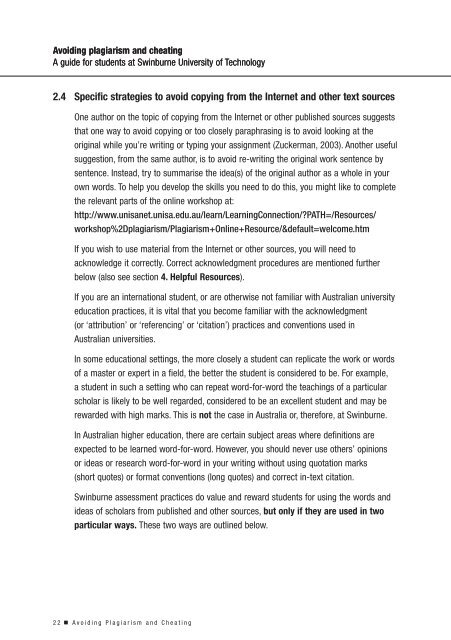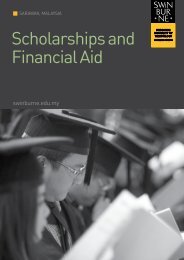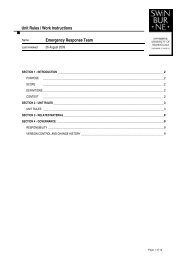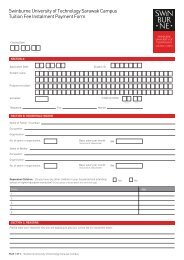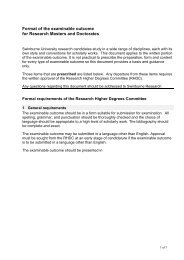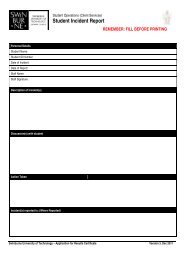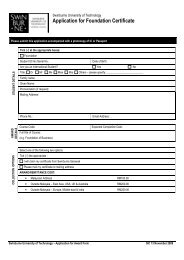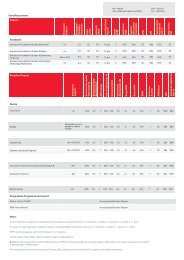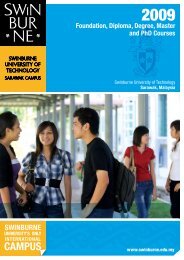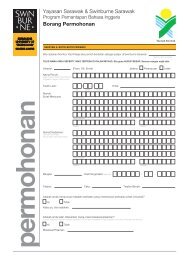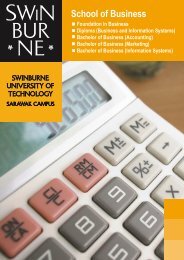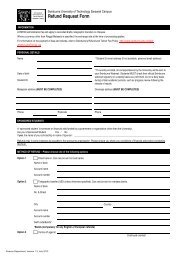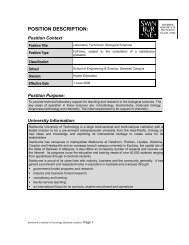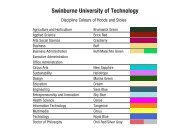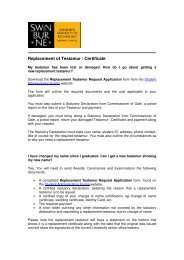Plagiarism Guide - Swinburne University of Technology
Plagiarism Guide - Swinburne University of Technology
Plagiarism Guide - Swinburne University of Technology
- No tags were found...
You also want an ePaper? Increase the reach of your titles
YUMPU automatically turns print PDFs into web optimized ePapers that Google loves.
Avoiding plagiarism and cheatingA guide for students at <strong>Swinburne</strong> <strong>University</strong> <strong>of</strong> <strong>Technology</strong>2.4 Specific strategies to avoid copying from the Internet and other text sourcesOne author on the topic <strong>of</strong> copying from the Internet or other published sources suggeststhat one way to avoid copying or too closely paraphrasing is to avoid looking at theoriginal while you’re writing or typing your assignment (Zuckerman, 2003). Another usefulsuggestion, from the same author, is to avoid re-writing the original work sentence bysentence. Instead, try to summarise the idea(s) <strong>of</strong> the original author as a whole in yourown words. To help you develop the skills you need to do this, you might like to completethe relevant parts <strong>of</strong> the online workshop at:http://www.unisanet.unisa.edu.au/learn/LearningConnection/?PATH=/Resources/workshop%2Dplagiarism/<strong>Plagiarism</strong>+Online+Resource/&default=welcome.htmIf you wish to use material from the Internet or other sources, you will need toacknowledge it correctly. Correct acknowledgment procedures are mentioned furtherbelow (also see section 4. Helpful Resources).If you are an international student, or are otherwise not familiar with Australian universityeducation practices, it is vital that you become familiar with the acknowledgment(or ‘attribution’ or ‘referencing’ or ‘citation’) practices and conventions used inAustralian universities.In some educational settings, the more closely a student can replicate the work or words<strong>of</strong> a master or expert in a field, the better the student is considered to be. For example,a student in such a setting who can repeat word-for-word the teachings <strong>of</strong> a particularscholar is likely to be well regarded, considered to be an excellent student and may berewarded with high marks. This is not the case in Australia or, therefore, at <strong>Swinburne</strong>.In Australian higher education, there are certain subject areas where definitions areexpected to be learned word-for-word. However, you should never use others’ opinionsor ideas or research word-for-word in your writing without using quotation marks(short quotes) or format conventions (long quotes) and correct in-text citation.<strong>Swinburne</strong> assessment practices do value and reward students for using the words andideas <strong>of</strong> scholars from published and other sources, but only if they are used in twoparticular ways. These two ways are outlined below.22 ■ Avoiding <strong>Plagiarism</strong> and Cheating


